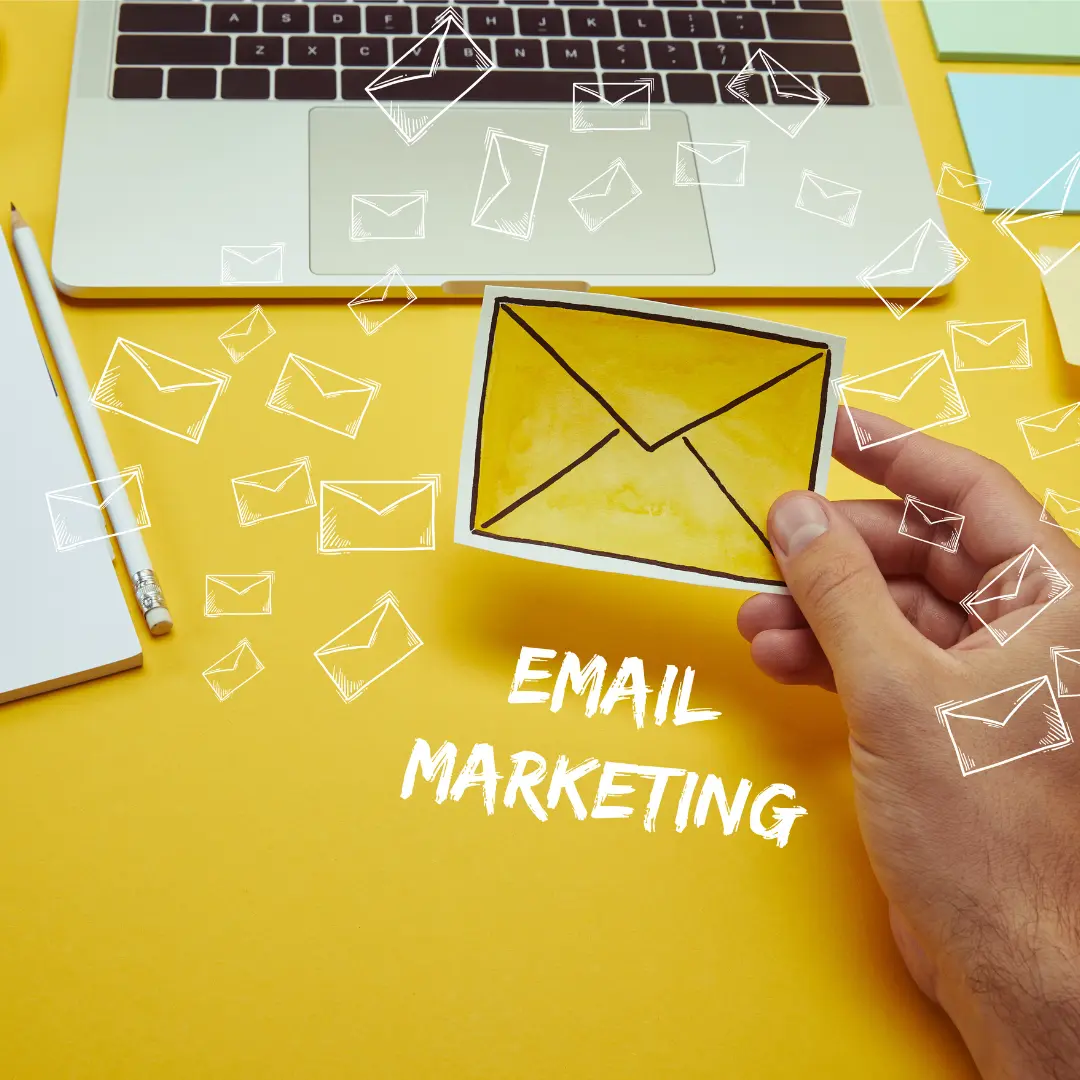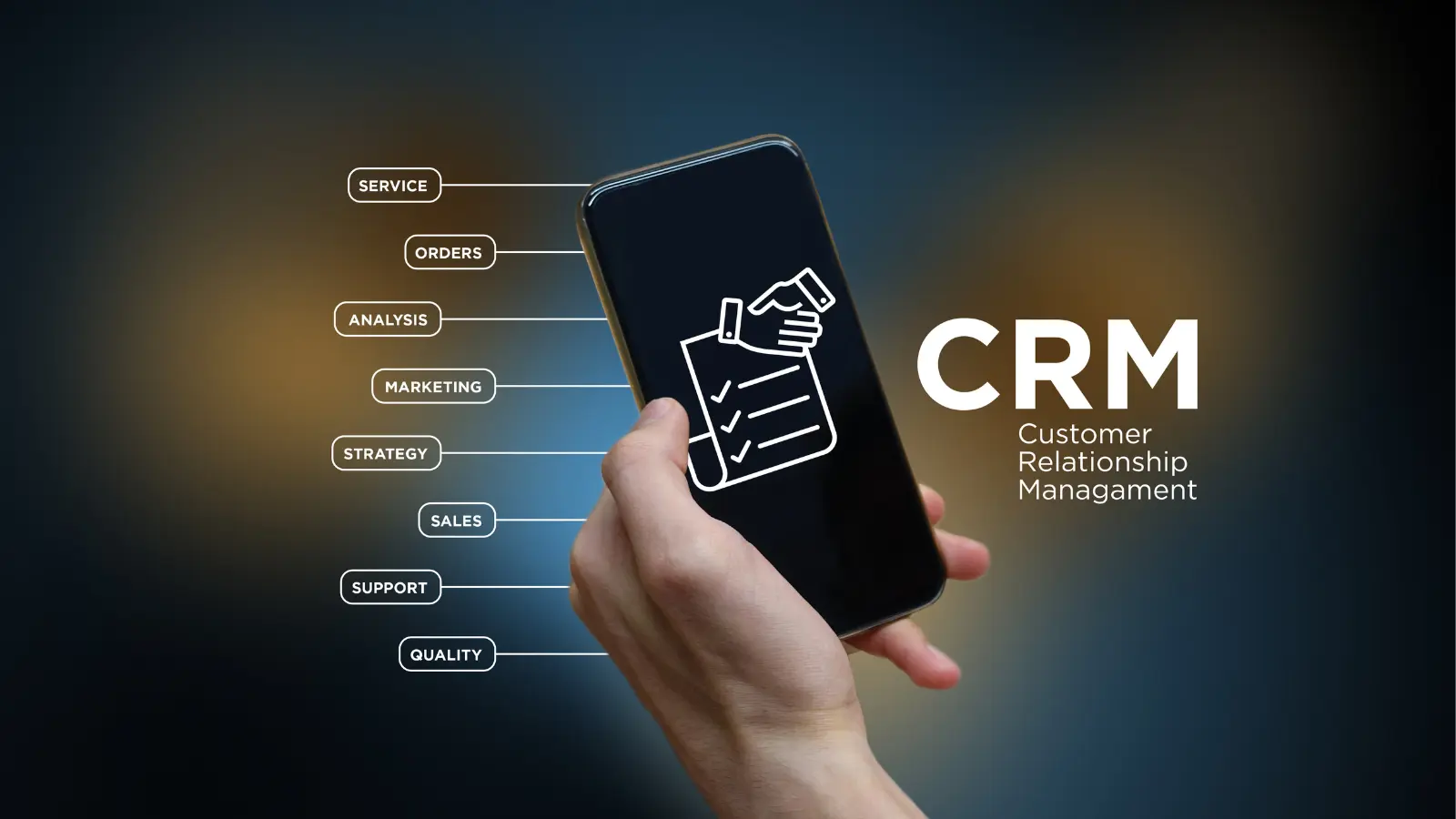Phones and tablets can help your business grow. Mobile tech can boost profits, make work easier, and get your target market interested. Here’s how you can use mobile tech to your advantage. The Global Reach of Mobile Tech All around the world, smartphone use is increasing. This surge in mobile tech applications leads to more mobile apps and mobile-first businesses. Here’s how companies all over the world are adapting to the mobile tech revolution: Mobile Payments: Businesses are adopting mobile payment systems like Apple Pay, Google Wallet, and PayPal to make the buying experience smoother. Mobile Messaging Apps: Customers globally are turning to apps like WhatsApp and Facebook Messenger for communication. Businesses are using these platforms for customer service and to engage their audience. Emerging Opportunities: Mobile tech is opening up ways for companies to connect with customers and increase sales. These include mobile payments and m-commerce. Additionally, companies are using advanced tech like augmented reality and virtual reality to create customized customer experiences. Mobile tech is expected to play an even larger role in the global business landscape in the future. One significant change on the horizon is the broader rollout of 5G technology. This will create new possibilities for businesses to use mobile tech more innovatively. Mobile Tech and Your Internal Processes Mobile tech helps small businesses, especially with internal processes. It lets you do more without spending a ton of money or time. It is also an effective tool to improve your systems. The following are ways you can use mobile tech to improve your systems: Digital Marketing: Use mobile marketing to boost your brand’s reach. It can help you get more leads and make more sales. Automation: Mobile tech can help automate routine tasks. This includes data entry, keeping track of your stock, and sending out invoices. Data Analytics: Use mobile tech to better understand your internal processes and customers. Data analytics can help you improve how your business works. The Power of Mobile Tech in Sales Customers are going mobile for their shopping and purchases. They’re buying more smartphones and using tablets more. Here are a few ways your business can harness mobile tech to improve your sales: Payment Options: Make paying easy for your customers by offering mobile payment options. Mobile Tools for Sales: Give your sales team mobile tools to help them sell more. QR Codes: Use QR codes to get customers interested in your business. You can also use QR codes to help them buy easier. Cloud-Based Software: Use software in the cloud to work better and save money. Embrace the Mobile Tech Movement Mobile tech is a game changer for businesses. It has revolutionized how companies operate and grow. Whether improving customer service, increasing sales, or making operations more efficient, mobile tech has much to offer. Don’t get left behind. Embrace the mobile tech movement and watch your business thrive. Explore a wealth of information on our website https://www.hammett-tech.com/our-blog/ Visit our Socials! https://www.facebook.com/HammettTech http://www.linkedin.com/companies/hammett-technologies Hammett Technologies (@HammettTech) / Twitter
Your business website is your digital storefront. Its job is to attract visitors and convert them into customers. One thing that affects this process more than you think is how fast your pages load. This is known as page speed. Let’s explore why it’s so vital for your business. What Is Page Speed? Page speed is how quickly a page on your website loads onto a visitor’s device. Google, the most widely-used browser, uses a set of factors called Core Web Vitals to measure this: Largest Contentful Paint – how quickly the main content appears. First Input Delay – the time it takes for your site to respond to a user’s first action. Cumulative Layout Shift – how much your page layout moves while loading. Why Page Speed Matters Roughly 73% of mobile users have run into slow-loading websites. A website is considered slow if it takes more than 3 seconds to load. If your website is slow, you could be losing customers. Here’s why: User Experience: Most users want to start immediately. They will move on to another site if yours is too slow. Search Rankings: Google uses page speed to decide how high your site ranks in its search results. This is true for both mobile and desktop sites. Paid Search Traffic: If your website is slow, your ads may be shown less often and cost more. Mobile Traffic: Most people access the internet from mobile devices, and these websites are slower than desktop ones. What Slows Down Your Site Certain factors can slow down your website, such as: Images that aren’t optimized Large file sizes Inefficient web hosting Complex themes and designs Embedded media from other sites Heavy use of widgets Boosting Your Website’s Speed Luckily, there are ways to make your website load faster. Here are a few essentials: Switch to faster hosting: A faster web host can load your site quicker. It can make a big difference, especially if your host is slow or overcrowded. Choose a simple, SEO-optimized theme: Less complexity means faster load times. Themes with clean code and minimal design elements can significantly improve your site’s speed. A Content Delivery Network (CDN): A CDN will help load your site faster. A content delivery network stores copies of your site at different locations and allows users to access it from the nearest server. Minify and externalize CSS, JavaScript, and HTML: Minifying involves removing unnecessary characters in your site’s code, reducing its size, and increasing its speed. Compress and reduce files and images: Again, smaller is faster. Using compression tools, you can reduce the file size of images and other resources without affecting their quality. Enable lazy loading for images: This means images load only when needed, only some at a time. Speed Is Game-Changing for Business The loading speed of your company website can be a game-changer for your business. It affects how users experience your site, your rank in search results, and your ads’ performance. Focusing on speed isn’t optional if you want a successful business website. It’s essential. Don’t let slow load times hold you back. If you invest in website loading speed, your business growth also increases. Explore a wealth of information on our website https://www.hammett-tech.com/our-blog/ Visit our Socials! https://www.facebook.com/HammettTech http://www.linkedin.com/companies/hammett-technologies Hammett Technologies (@HammettTech) / Twitter

In the fight against phishing, Microsoft is one of the industry leaders. Its latest feature, launched in Windows 11 version 22H2, has a design that protects system credentials. The new feature will alert you if you paste your Windows password into a document or website. Impact on Business Owners This measure, part of the Windows 11 Enhanced Phishing Protection, helps businesses safeguard their credentials. You’ll receive a warning if an attempt is made to paste system passwords. By warning you of potential threats, it serves as an added layer of security for your business. Navigating the New Feature When you use the new feature, a window will appear if a Windows password is pasted into a website. It warns you about the risks of reusing passwords. It also suggests changing your local Windows account password and provides a link to the settings for an easy change. Potential Limitations Note that this feature might not work with third-party applications like Notepad2 and Notepad++. Moreover, the warning won’t trigger if you’re using Windows Hello, Microsoft’s password-less login feature. For this alert system to work, you’ll need to use a password to log into Windows, store it in the system memory, and reference it against pasted text. Ensuring Optimal Usage This feature is a significant stride toward more secure business operations. Here are a few tips to further optimize your system: Keep your system up-to-date. This will help you get the latest security features. Teach your team the risks of pasting system passwords into sites or documents. Encourage unique passwords for different accounts. Use multi-factor authentication when you can. This adds more security. Change passwords regularly. This reduces the risk of unauthorized access. Watch for strange activity or unusual login attempts. Make regular backups. This keeps your data safe. Use a password management tool. These tools can generate and store complex passwords. Embrace the Change for Enhanced Security Windows 11’s anti-phishing measure is a welcome addition to business security. This proactive approach from Microsoft is a vital step toward a safer business operation. By staying updated, utilizing this new feature, and adopting cybersecurity practices, you can provide your business with robust protection against online threats. Embrace the change and ensure a secure future for your business. Explore a wealth of information on our website https://www.hammett-tech.com/our-blog/ Visit our Socials! https://www.facebook.com/HammettTech http://www.linkedin.com/companies/hammett-technologies Hammett Technologies (@HammettTech) / Twitter

In the online world, cookies are not tasty treats. “Third-party cookies” can cause damage. These cookies are data bits stored on your computer by a site different from your browsing site. These cookies can track what you do across many websites. Cookies can create security risks for businesses. What Are Third-Party Cookies? Third-party cookies originate from a different site than the one you’re visiting. They often provide content, like ads, on your browsing site. These cookies can track what you do on different sites. They keep tabs on the pages you visit and the items you put in shopping carts. That’s called cross-site tracking. Security Risks of Third-Party Cookies Third-party cookies can lead to some significant security issues. Here’s why: Browsing Data Theft: Cybercriminals can steal your browsing data. This data includes the sites you visit, your searches, and items you buy online. It can also include saved passwords and where you’re located. Data Leakage: Sometimes, a site might leak or give away your data. This can happen if the site uses malicious third-party services. Targeted Attacks: With your browsing data leaked, hackers can make personalized attacks. These attacks can harm your business financially or damage your reputation. Improving Your Security Many web browsers are working to stop third-party cookies. In recent years, they have added new ways to block these cookies. But be aware that a new browser might not block these cookies immediately. Protecting your business from third-party cookie risks is essential. Here are some steps you can take: Check Your Browser Settings: Make sure your browser blocks third-party cookies. You might have to change your settings to do this. Limit Sharing: Be careful about the data you share online. The less data you share, the less there is to steal. Use Reliable Third-Party Services: If you use third-party services, choose the ones that protect your data. Educate Your Team: Ensure your team knows about third-party cookies. They should know how to protect their data as well. Crumbling the Third-Party Cookie Ultimately, understanding third-party cookies is critical to your business’s online safety. These cookies seem harmless. But they can give hackers the information they need to harm your business. You can protect your business by blocking these cookies and being careful with your data. Regarding third-party cookies, it’s better to be safe than sorry. Remember, your business’s security is too important to risk. So, stay informed and alert to keep safe. Explore a wealth of information on our website https://www.hammett-tech.com/our-blog/ Visit our Socials! https://www.facebook.com/HammettTech http://www.linkedin.com/companies/hammett-technologies Hammett Technologies (@HammettTech) / Twitter

You may believe software updates are only intended to resolve bugs or add new features, but they have far more benefits for your business. They improve the compatibility and performance of your computer systems and, most importantly, strengthen your defenses against cyber threats. How Do Updates Help Your Business? Keeping your software up to date does a lot for your business: Increased efficiency. Updates can add new tools or improve old features, helping you and your team complete tasks faster. Enhanced collaboration. Cloud-based tools and other software help your team work together easier. Improved mobility. Mobile devices improve with each update, letting you stay productive wherever you are. Streamlined operations. Some updates add automation, which can do repetitive tasks for you, giving you more time for more important tasks. On the other side, outdated software can expose your business to significant risks: Data theft. If your software is old, cyber criminals might find a way in and steal your data. Operational interruptions. Outdated software can cause your system to crash or slow down, which can mess up your work. Higher costs. Keeping old software working can cost a lot of money over time due to technical problems or loss from data theft. How to Stay Ahead with Software Updates Regularly updating your software and operating system protects your business against hackers. Software updates often include patches that seal security loopholes, making it harder for cyber criminals to access your systems. Here’s what you can do to stay updated: Set up automatic updates. Check regularly for software updates if auto updates are not available. Educate your team about the importance of installing updates promptly. Make a schedule for checking and installing updates. Updates: The Secret Ingredient for a Successful Business Software updates are not just enhancements to your apps. They are a big part of making your business operations better and safer. By getting software updates as soon as they are available, you help your business run smoother and provide a safer place for work. Remember, an updated system is the first step in protecting your business from cyber threats and keeping it on its path to growth. Explore a wealth of information on our website https://www.hammett-tech.com/our-blog/ Visit our Socials! https://www.facebook.com/HammettTech http://www.linkedin.com/companies/hammett-technologies Hammett Technologies (@HammettTech) / Twitter
Picture this: your business is a well-oiled machine, tackling daily challenges and achieving new milestones effortlessly. All the while, you’re outpacing your competition. Sounds like a dream, right? But what if this dream could become a reality by harnessing the power of AI and automation? These advanced technologies reshape how businesses work in today’s fast-changing digital world. They unlock incredible efficiency and fuel growth like never before. This article will explore how you can use AI and automation to transform your business. We’ll show you ways to stay ahead of the competition and embrace these exciting technologies. Revolutionizing Customer Service One area where AI can make a significant impact is customer service. By utilizing AI-powered chatbots, you can provide instant customer support 24/7. These virtual assistants can take care of simple questions. This allows your team to focus on more complicated tasks. As a result, customers get quicker and better support. Enhancing Data Analysis and Decision Making Data is the lifeblood of any modern business, and AI can help you better use the information you collect. Machine learning can analyze huge data sets. It finds patterns and trends that need noticing. This makes understanding data more manageable. With AI, you can make smarter decisions. It helps you improve your marketing plans and develop better products. In the end, your whole business performs better. Streamlining Workflow With Automation Automation is another key way to optimize your operations. Automation can help with tasks like data entry and order processing. Handling these repetitive jobs saves time and prevents mistakes due to human error. Imagine a retail business that automated its inventory management system. This change would accomplish two things. First, it would save employees from tedious manual tasks. Second, it would ensure stock levels are accurate and current. Optimizing Resource Allocation AI and automation can also help you allocate resources more efficiently. Predictive analytics helps foresee demand. You can change staffing or production assignments as needed. This leads to cost savings as your business becomes more efficient and adaptable. Ignite Your Business Transformation By embracing the power of AI and automation, you can boost your business and propel it toward greater success than ever before. These advanced technologies offer new opportunities for innovation and improved customer satisfaction. So, leap into the future and ignite your transformation journey with the guidance of AI and automation. Let these tools help unlock your business’s full potential and achieve unprecedented growth.
In today’s ever-evolving technological landscape, artificial intelligence (AI) tools have emerged as a game-changer for businesses of all sizes. Major tech companies like Adobe, Microsoft, and Amazon have spearheaded these innovations. With the potential to streamline processes, improve customer experiences, and boost revenue, AI tools are transforming how companies operate. So as a business owner, what can you do to maximize the AI wave? Streamlining Processes and Improving Customer Experiences AI tools streamline various business processes, making your operations more efficient. For example, Adobe’s Firefly technology simplifies video editing tasks. It allows anyone to edit videos, color grade, add music and sound effects, and easily create title cards. This not only saves time but also enhances the quality of your content. Amazon Bedrock is another example, which provides tools for companies to build custom AI applications. You can look for AI solutions more tailored to your business challenges and objectives. This leads to improved customer experiences and increased revenue. Staying Competitive With AI-Powered Search Microsoft has also entered the AI game, revamping its Bing search engine and Edge browser with AI capabilities. This technology enhances search results, delivering more accurate and complete answers to users. Adopting AI-powered search tools can improve your online presence as a business owner. It ensures that your customers find the information they need quickly and efficiently. As well as help you better understand your customers and provide them with a more tailored experience. Tips for Integrating AI Into Your Business Integrating AI into your business can seem daunting at first. However, by following a few tips, you can ensure a smooth transition and maximize the benefits of AI tools. Assess your needs. Identify the areas in which AI tools can provide the most significant benefits for your business. This will help you invest in the right technology for your specific requirements. Start small. Test AI tools on a smaller scale before implementing them across your entire organization. This will give you time to learn and adapt to the new technology and lessen potential disruptions to your operations. Train your staff. Ensure your employees are well-trained to use the AI tools you install. Providing adequate training and support will ease the transition. It will also maximize the benefits of the technology. Track and evaluate. Regularly review the performance of the AI tools you’ve implemented. This will help you identify areas for improvement and ensure that you’re making the most of your investment. Embrace the AI Wave The emergence of AI tools from established tech companies presents a unique opportunity for businesses to streamline operations, enhance customer experiences, and ultimately boost revenue. By following the tips above, business owners can effectively integrate AI into their operations and reap its full benefits. Embrace the AI wave and stay ahead of the curve in this ever-evolving digital landscape. The possibilities are endless, and with the right approach, you can achieve a more prosperous, innovative future for your business.

You might wonder if maintaining a website is worthwhile. You can still operate your business without one, right? Wrong. A website is now essential in the modern digital world and is no longer a luxury. Here are some compelling reasons why nearly all companies should have a website: Improved Credibility A professional website helps establish your business as a credible and trustworthy company. A company with a well-crafted website is more likely to attract customers than one with no online presence. A website also allows you to promote your skills and knowledge in the industry. You can use your website to showcase your services, previous projects, and client testimonials, all of which can help to instill trust in potential customers. Improved Customer Engagement A website gives you a platform to communicate with your customers and inform them about your company. You can use your website to post updates, offer special promotions, and even accept orders or service requests online. Having a website also makes it easier for customers to reach out to you. They can use your website’s contact form to ask questions or request more information rather than calling or visiting your physical location. Improved Online Presence In today’s world, most individuals search for products and services online before making a purchase. A website can help your company appear in search results, increasing its exposure to potential clients. Additionally, having a website allows you to have a presence on social media platforms, such as Facebook and Instagram. You can use these platforms to promote your business and drive traffic to your website. You can also use your website to collect email addresses and send newsletters or promotional materials to your subscribers. Even the smallest of companies should have an online presence. It improves customer engagement, online exposure, and credibility. Keep your company from falling behind the competition; invest in a website and start reaping the benefits. A website is a critical component of any small business’s marketing plan that should not be overlooked.

Email marketing is a highly successful strategy for modern businesses, giving a variety of advantages that may assist in increasing customer interaction, brand exposure, and lead generation. Here are some of the most important benefits of having an email marketing plan for your company: Increased customer engagement: By delivering targeted, tailored emails to your clients, you may increase their engagement with your company and its offerings. This can assist in increasing client retention and loyalty. Improved brand recognition: An email marketing campaign can help promote your brand and increase target audience awareness of your products or services. This might be especially valuable if you are a new firm or want to enter new markets. Enhanced lead generation: Email marketing can effectively generate leads for your small IT business. By including calls-to-action in your emails, you can encourage recipients to visit your website or contact you for more information about your products or services. Cost-effective: Email marketing is generally a low-cost marketing strategy, particularly when compared to traditional marketing forms such as print or TV advertising. This makes it an ideal option for small businesses with limited marketing budgets. Easy to track and measure: Email marketing tools make it easy to track the success of your campaigns and identify areas for improvement. This allows you to fine-tune your email marketing strategy over time and ensure that you get the best possible marketing investment results. Email marketing is an effective technique that companies should consider. You can increase consumer interaction, raise brand recognition, and create leads for your organization by executing an email marketing plan. Email marketing provides an unrivaled mix of efficacy and efficiency due to its cheap cost and easy-to-track results. Don’t pass up the chance to take your business to the next level. Begin adopting an email marketing plan today and watch your company succeed in the digital era.

There are several ways a business can enhance and optimize its operations. A customer relationship management (CRM) system is one technology that may considerably assist your organization. A CRM system is software that helps businesses manage and optimize customer interactions and data across the customer lifecycle, from lead creation to nurturing. There are several key advantages to using a CRM system for lead generation and nurturing. First and foremost, a CRM system allows you to centralize and organize your customer data in one place. This includes contact information, communication history, and any notes or comments about the customer. Having this information easily accessible allows you to better understand your customers’ needs and preferences, as well as effectively communicate with them. A CRM system helps you concentrate and manage all your client data in one location. Contact information, communication history, and any notes or remarks regarding the consumer are all included. Having this information available enables you to understand better your clients’ requirements and preferences, as well as effectively communicate with them. In addition to improving sales and marketing efficiency, a CRM system can also help increase customer loyalty. By managing customer interactions and communication through a CRM, you can provide a better overall customer experience. This can increase customer retention and positive word-of-mouth marketing for your business. The advantages of a CRM system don’t end there. Your sales process may be streamlined and optimized with a CRM. For instance, you may use a CRM to track a prospect’s journey through the sales funnel and see any bottlenecks or areas where businesses can improve. Companies may also use a CRM to manage their sales team, monitor sales performance, and assign tasks. A CRM system is a valuable tool for small IT companies aiming to enhance their lead generation and nurturing efforts. In addition, a CRM may help you expand your business and create lasting relationships with your clients by improving consumer insights, sales, marketing efficiency, and customer loyalty.
- 1
- 2




